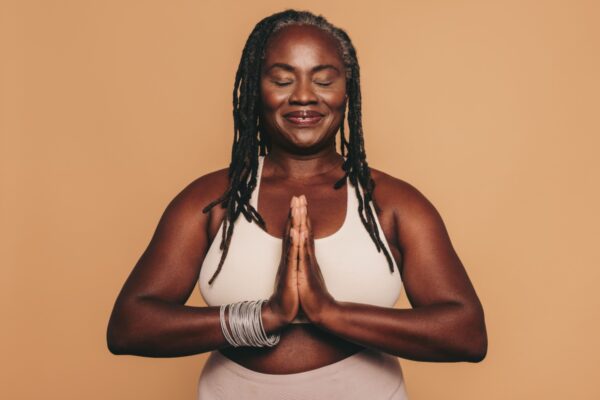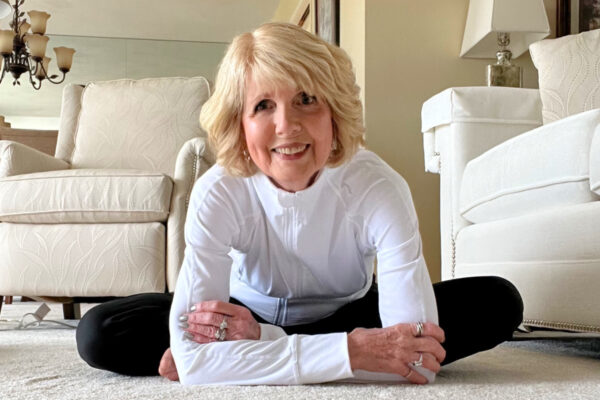
Loved ones dying is a part of living. If we are lucky, it only happens after they have lived a long and full life.
While the death of a loved one is painful, sometimes the hardest part is watching them slowly decline before they pass.
Watching loved ones decline can be overwhelming
Watching the vibrant person they were decline into infirmity is emotionally draining, but when you add in the worries about paying for their care, it can become overwhelming.
My mother watched her dad go through that exact scenario after her mother was diagnosed with Alzheimer’s disease.
Grandpa refused to put Grandma in a nursing home, so he paid for in-home care throughout her whole illness. By the end, he was mostly out of money.
Mom and her brother did what they could, but they had their own bills and debts.
After witnessing all the financial and legal issues related to long-term illnesses, Mom and Dad made sure to do things differently.
They drew up wills; they purchased long-term care insurance; they signed DNR (Do Not Resuscitate) orders; and they made clear their burial wishes.
Nothing completely prepares you for the stress, worry and loneliness
All of these were positive steps and did help my mother when my father had his stroke, but nothing can completely prepare you for the stress, worry and loneliness when your life partner becomes fatally ill.
While my father was ill, Mom had many challenges, emotional and physical. Dad had a couple of strokes, about a year apart.
After the first one, he was still able to get around fairly well, but he had aphasia that made it very hard to communicate.
Due to over 50 years of marriage, most of the time Mom was able to understand what he wanted. My sister and I were not.
Communicating became very frustrating for both parties. Dad finally gave up most of the time. He really did not seem interested in trying to improve.
Another challenge was eating
The stroke had affected his ability to swallow. Dad had always been a strictly meat and potatoes guy, but now he needed everything ground up to a specific consistency.
Even hospitals have a hard time creating healthy meals for patients, so how was Mom supposed to be able to create nutritious meals, grind them up and then get Dad to eat them? It was tough, and Dad lost weight.
For the last two years of his life, he was dangerously underweight. Mom finally made the decision to ignore the doctors and let him eat regular food just to keep him from losing more weight.
That just added to her burden though, because she had to watch him the whole time to make sure the food was going down the right pipe.
Almost exactly a year later, he had a second stroke. This one didn’t affect any different areas; it just made his symptoms worse. He had to spend more time in a rehabilitation facility that he hated.
A memory care unit?
At this point, Mom had to decide whether to bring Dad home again or move him into a memory care unit. We knew he wanted to go home, but was Mom really able to care for him?
It had been hard before the second stroke and he was in worse physical shape now. It was finally decided that he needed to go to a memory care unit.
I don’t know if that was the best decision for his emotional health, but it was really the only decision Mom could make.
My sister and I were glad to see Mom take care of herself by acknowledging that she wasn’t up to the task of caring for Dad.
So many women of her age, born in the 1930s, have been taught that their main role in life was as a caregiver and that role should come even before their own health.
Mom has always taught us to be independent and to care for ourselves, but she rarely modeled it for herself.
Also read: David Bach on preparing for retirement at 50+

This is a difficult decision for anyone to make. There are a few things that can help when this decision does need to be made.
Plan ahead
You need to plan ahead, whether it is with a spouse, children, or trusted executor. Put all your wishes in writing, so if you can no longer communicate, they are known.
Have a will drawn up, make sure all the correct legal rights are specified. (Mom had problems selling their house before Dad died, because both their names were on the deed, but he couldn’t sign the seller’s documents.)
If you do not want to be resuscitated, make sure that document is created. Discuss the options of in-home care versus a nursing home with your caretaker.
If a nursing home is okay, give them permission; it will alleviate any guilt they may have. If you prefer them to not use that option, help them plan for the next two items.
In-home nursing
Something previously only for the wealthy, in-home nursing care has become more mainstream. It is not for all cases, but if you only need help a few hours a day, this is a great option.
One thing to consider is the personality and gender of the nursing help. My dad refused to let women help him shower or clean up in any way.
If my mother was not helping him, it had to be man. Luckily, the number of male nurses is on the rise. Therefore, this wasn’t as big of a problem as it could have been.
Always make sure the service you use is licensed and its caregivers are correctly trained, insured and bonded.
Remodeling/Equipment
One of the problems for many people is their home is not able to accommodate equipment that will help caregivers.
If you really want to stay in your home rather than move to assisted living, you need to consider remodeling your house for aging-in-place and then researching equipment that can help.
Make sure the halls and doorways are wide enough for wheelchairs and portable lifts that can help move your loved one if they fell or needed help out of bed.
Install grab bars in the bathroom along with a sit down shower. If there are steps in the house you might need to install ramps for a wheelchair.
There are certified Aging-in-Place specialists that can help you with all these issues.
Insurance
This is important to consider now. If you are worried about money for care, consider long-term care insurance. It saved my mother a lot of money, and would have helped my grandfather.
It might seem a little expensive, but it is much less than the cost of assisted living or a nursing home.
If you don’t have any life insurance, now is the time to look into it. No exam and guaranteed cover policies are available to seniors.
Another option is burial insurance. This provides a smaller payout that is meant to cover funeral costs, but it is paid directly to the beneficiary, so the money can be used however needed.
As a senior or even in your 50s, it is not too late to get life insurance to help with expenses.
Loved ones dying is a part of life. It will never be easy and all the planning in the world will not make it easier.
But, eliminating some of the worries, such as financial matters and trying to decide what they would have wanted, can help you get through this difficult time.
My new husband and I are already discussing these matters and getting everything down in writing.
I hope that neither of us ever gives up, like my dad did, but hopefully we will be ready for whatever happens.





Leave a Reply